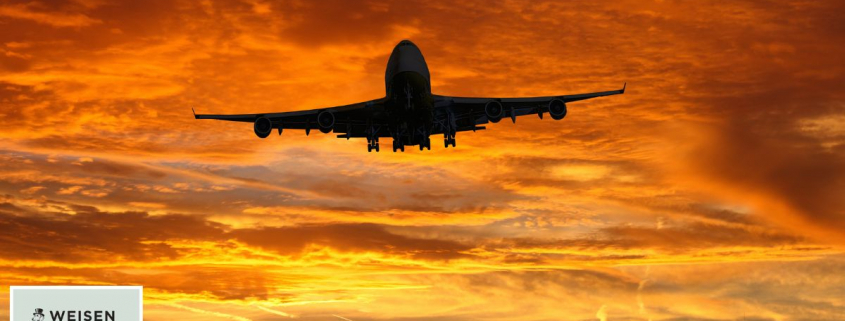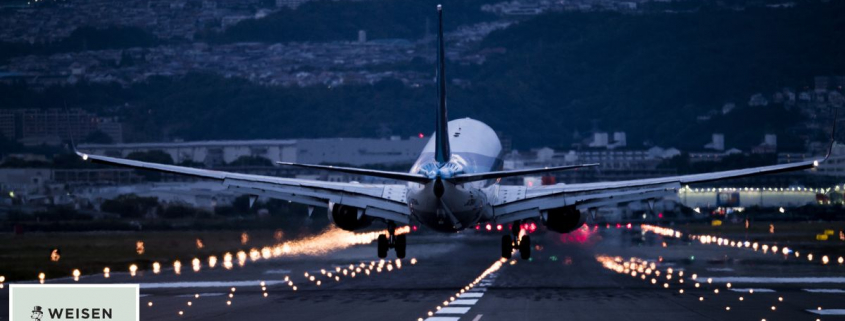Die österreichische Judikatur zur Erstattung von Vermittlungsprovisionen
Gemäß Artikel 8 der Verordnung (EG) 261/2004 haben Fluggäste bei Nichtbeförderung, Annullierung und großer Verspätungen das Recht, zwischen der Erstattung des vollen Flugpreises innerhalb von 7 Tagen und der Weiterbeförderung zum Endziel zu wählen. Von großer praktischer Bedeutung ist die Frage, ob die Formulierung „vollständige Erstattung der Flugscheinkosten“ die Verpflichtung der Luftfahrtunternehmen einschließt, etwaige Vermittlungsgebühren zu erstatten, die die Fluggäste während des Buchungsvorgangs entrichten mussten.
In seinem Urteil in der Rechtssache C-601/17 (Harms/Vueling) hat der EuGH klargestellt, dass die Erstattung den Preis des Flugscheins einschließlich der von einer zwischen dem Luftfahrtunternehmen und dem Fluggast vermittelnden Person erhobenen Provision (d. h. einer Vermittlungsgebühr) umfassen sollte, es sei denn, diese Provision wurde ohne Wissen des Luftfahrtunternehmens festgelegt.
Dieses Urteil gab zwar wichtige Hinweise, warf aber auch eine neue Frage auf: Was genau bedeutet „Wissen des Luftfahrtunternehmens„?
Um diese Frage vollständig zu verstehen, ist es wichtig zu wissen, wie Flugtickets verkauft werden. Flugscheine werden in erster Linie entweder direkt über die Website des Luftfahrtunternehmens oder über ein Reisebüro (entweder vor Ort oder online) verkauft. Um den Verkauf von Flugscheinen durch Reisebüros zu erleichtern, erteilt die International Air Transport Association (IATA) IATA-zertifizierten Agenturen die Befugnis, Flugscheine direkt für die Mitglieder der Fluggesellschaft auszustellen.
Traditionell agierten diese Reisebüros als Handelsvertreter für die Fluggesellschaften und erhielten von ihnen Dienstleistungsgebühren. In den letzten 20 Jahren haben jedoch zahlreiche Fluggesellschaften ihre Preismodelle dahingehend geändert, dass sie keine Servicegebühren mehr an Reisebüros zahlen und den Ticketkauf direkt über ihre eigenen Websites fördern. Infolgedessen haben die Reisebüros ihre Geschäftsmodelle angepasst und schlagen nun Gebühren auf die von ihren Kunden, den Fluggästen, gezahlten Ticketpreise auf. Trotzdem behalten die Reisebüros das Recht, Flugtickets direkt auszustellen.
In ihrer Antwort auf die Rechtssache C-601/17 argumentierten die Fluggäste (vertreten durch ihre Anwälte bzw. Beschwerdebüros), dass die Erstattung der Flugscheinkosten aufgrund der besonderen Beziehung zwischen Luftfahrtunternehmen und Reisebüros auch die Vermittlungsgebühren umfassen müsse. Sie machten geltend, dass den Luftfahrtunternehmen bekannt sei, dass Reisebüros typischerweise Gebühren als Teil ihres Geschäftsmodells erheben, und dass das allgemeine Wissen ausreiche, um die Verpflichtung des Luftfahrtunternehmens zur Erstattung der Vermittlungsgebühren zu begründen.
Während es in Deutschland zahlreiche Urteile zu diesem Thema gibt, sind österreichische Urteile, insbesondere des Landesgerichts Korneuburg, selten zu finden. Deshalb freuen wir uns, dass unser Aviation Team kürzlich war und für einen unserer Airline-Kunden zwei positive Entscheidungen des Landesgerichts Korneuburg in diesem Fall erzielt hat.
In diesen Urteilen (22 R 226/22y und 22 R 37/23f) hat das LG Korneuburg (auf unsere Berufungen gegen Entscheidungen des LG Schwechat) festgestellt, dass sich der vom EuGH verwendete Begriff „Wissen“ auf das konkrete Wissen der vom Vermittler verrechneten Vermittlungsgebühr bezieht. Das Gericht betonte, dass die verschiedenen Bestandteile eines Flugscheins, wie z.B. der Preis, vom Luftfahrtunternehmen genehmigt werden müssen, was nur mit spezifischem Wissen geschehen kann. Die möglichen Informationsrechte der Luftfahrtunternehmen aufgrund von IATA-Vereinbarungen oder das Vorhandensein von Anreizvereinbarungen, in denen die Höhe der Vermittlungsgebühr nicht festgelegt ist, ändern nichts an dieser Schlussfolgerung.
Für Fragen zu Passenger Claims in Österreich steht Ihnen unser erfahrenes Aviation Team gerne zur Verfügung.






